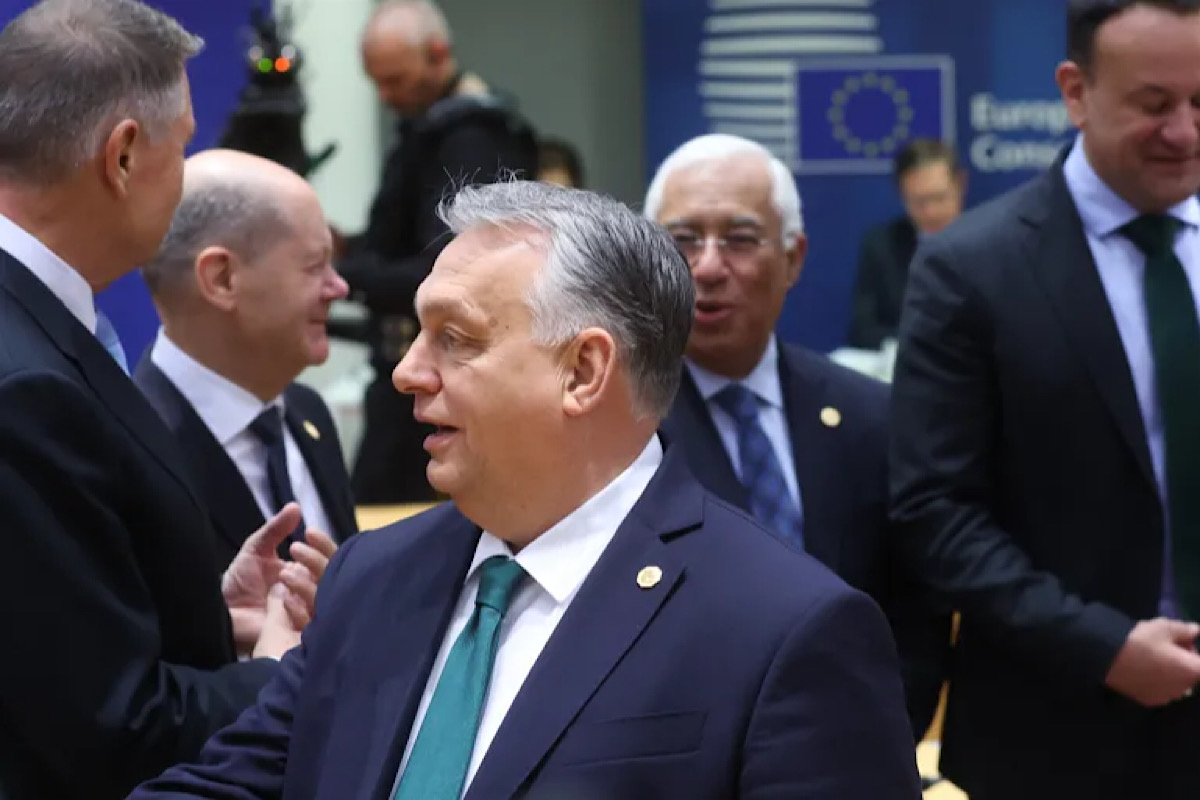Europe’s Defence
Revelations about the state of Europe’s defences are a stark reminder of the urgent need for a robust and united approach to security within NATO.
All 27 European Union countries have reached consensus on an additional 50 billion euros (USD 54 billion) aid package for Ukraine, overcoming potential vetoes, notably from Hungary, Al Jazeera reported.

Hungarian Prime Minister Viktor Orban at the meeting in Brussels, Belgium,(photo:Reuters)
All 27 European Union countries have reached consensus on an additional 50 billion euros (USD 54 billion) aid package for Ukraine, overcoming potential vetoes, notably from Hungary, Al Jazeera reported.
European Council President Charles Michel announced the breakthrough after a special summit of EU leaders in Brussels, stating, “We have a deal.”
The approved aid package is seen as a commitment to providing steadfast, long-term, and predictable funding for Ukraine. Michel emphasized that this decision reflects the EU’s leadership and responsibility in supporting Ukraine, emphasizing the gravity of the situation at hand, as reported by Al Jazeera.
Ukraine’s President, Volodymyr Zelenskyy expressed gratitude for the unanimous approval, emphasising the strengthened long-term economic and financial stability for Ukraine as it navigates the complexities of the ongoing conflict with Russia.
Zelenskyy noted, “It is very important that the decision was made by all 27 leaders, which once again proves strong EU unity.”
Advertisement
The urgency for financial support from Western countries has intensified for Ukraine, given recent political delays in both US and EU aid, bolstering Russian confidence amidst the prolonged conflict.
The EU had previously agreed on the aid package in December, extending support until 2027 and designating Ukraine as a candidate for EU membership, a decision reluctantly accepted by Hungary’s Prime Minister Viktor Orban, known for his close ties to Russian President Vladimir Putin.
However, Orban’s discontent arose from the European Commission’s decision to restrict his government’s access to certain bloc funds, citing concerns about potential threats to the EU budget by Hungary. Orban’s subsequent veto of several EU issues created a diplomatic standoff, with Estonian Prime Minister Kaja Kallas stating, “I don’t want to use the word blackmail, but I don’t know what other better word might fit.”
Following intense negotiations, the deal’s finalisation was met with relief in Ukraine, ensuring funding for the next four years and providing a longer-term sense of security. The first tranche of 4.5 billion euros (USD 4.9 billion) from the EU facility is expected to reach Ukraine in March.
Orban, after lifting the veto, cited guarantees about the sensible use of the funds and reassurances that Hungary’s money would not end up in Ukraine. The EU’s united front in approving the aid package aims to send a clear message of solidarity, especially considering the challenges posed by the upcoming US elections and the ongoing uncertainty in the geopolitical landscape.
While a similar aid package from the US faces internal political disputes and complications due to the upcoming presidential election in November, the EU’s decisive action ensures crucial financial support for Ukraine during these challenging times, Al Jazeera reported.
Advertisement